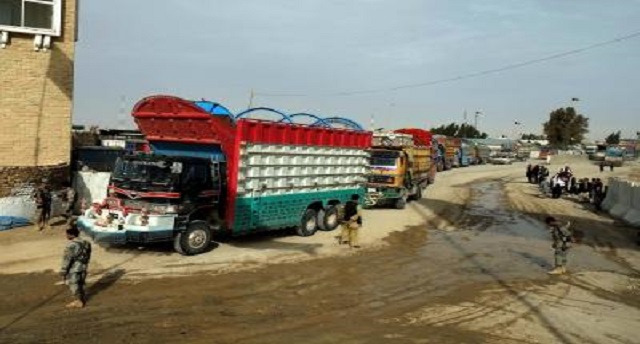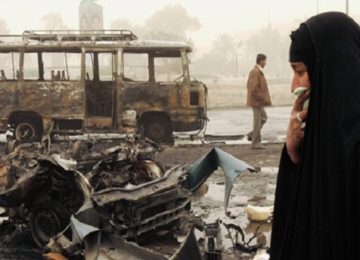April 28, 2020

As part of its quarantine measures to mitigate the prevailing coronavirus outbreak, the Government of Pakistan closed the Pak-Afghan border for all types of movement, including that of cargo imports, transit trade as well as that of the people in March 2020. The measures drastically impacted the Pak-Afghan bilateral and transit trade while stranding thousands of Afghans in Pakistan and thousands of Pakistanis in Afghanistan. However, on the request of Kabul and on humanitarian grounds, on April 5, the Government of Pakistan directed concerned authorities to partially open the border at Torkham and Chaman crossing points – for three days a week for 8 to 10 hours – to allow the movement of bulk food items and other necessary goods. Thousands of Afghans stuck in Pakistan also crossed over into Afghanistan.
While the partial opening of the border has provided landlocked Afghanistan some access to basic necessities, the partial closure has presented the importers with several challenges. According to Zubair Motiwala, Chairman Pakistan Afghanistan Joint Chamber of Commerce and Industry (PAJCCI), both Torkham and Chaman border crossing points are facing a huge problem of clearance where only 42 at Torkham and 30 at Chaman crossing points have been cleared. Though, the pace has increased to about 70-80 containers a day now, however, as there are 4500-5000 containers already stuck in Karachi, estimates show that it will take 3-4 months just for their clearance.
Moreover, as new containers pile up at the Karachi port, the backlog will stay for 45-50 days which will be very problematic for people to work with, Motiwala stated. The issue is pressing for Pakistan as these ports are the very routes that Pakistan’s exports depend on even for China and other countries. In the wake of this situation, trade has almost halted for Pakistan and it’s monetary transactions are suffering badly. Motiwala stated that while Afghanistan is Pakistan’s neighbor, but it is also noteworthy that Iran has closed its borders with Afghanistan.
To tackle this challenge, Chairman PAJCCI proposed decreasing the scanning to 20% – 25% instead of adhering to the usual 100% of thorough scanning. He stated that Pakistan had handled more containers than the number currently stranded during the US war in Afghanistan when US and NATO forces would transfer their containers via Karachi to Afghanistan with 75,000-80,000 containers cleared every year. In comparison, the present situation can be handled easily if the scanning mechanism is relaxed. Scanning is only done for the purpose of detecting and preventing smuggling which, under the present circumstances, is slowing the process even further and can be ignored for now, according to PAJCCI’s chairman.
Motiwala further stated that, as a result of the border closure, not only are the Afghan businessmen suffering but moreover, Pakistan’s industries have been shut down, causing Pakistan a great deal of loss. Shipping companies are imposing heavy fines even though the FBR has requested them not to. In this regard, many other countries have offered relaxation and Pakistan has increased the the stay time for the containers from 5 day to 15 days. However, Motiwala urged the Prime Minister, the Commerce Minister and the Foreign Ministers to look for an alternative to normalize the situation so the flow of containers can take place. He stressed on decreasing the scanning rate at the border while also keeping the crossing points open seven days a week round the clock to keep trade and business flowing between the two countries. He proposed that new parameters can be set up after these containers, currently stranded, are cleared, urging that under the current extraordinary circumstances, concessions should have to be offered.








